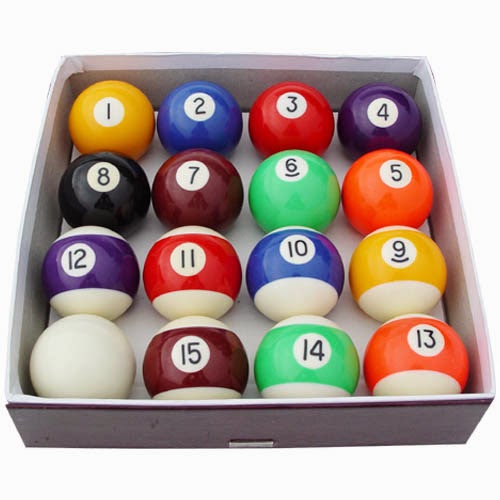In this post, we'll look into Integer Wrapper class and its Integer constant pool concept with reason behind it for creating such pool with few examples.
What is Integer Class?
The Integer class wraps a value of the primitive type int in an object. An object of type Integer contains a single field whose type is int.
In addition, this class provides several methods for converting an int to a String and a String to an int, as well as other constants and methods useful when dealing with an int.
Before moving further please guess the output of the following program. If you are able to answer them all correct, then it's means you know how Java Integer Constant pool works :)
Before moving further please guess the output of the following program. If you are able to answer them all correct, then it's means you know how Java Integer Constant pool works :)
You can find the answer at the bottom of the post. If your answers are not right, then read further to know why Integer class behave in a unusual way.
Integer i = 10 vs Integer j = new Integer(10)
After compiling this class, I tried to de-compile the same class. What is got it this
So java called Integer.valueOf() whenever we create object of Integer class as Integer i = 10;
So java called Integer.valueOf() whenever we create object of Integer class as Integer i = 10;
Integer.valueOf()
Let's see what does this function do. As per the Oracle doc, it says
public static Integer valueOf(int i)
Returns an Integer instance representing the specified int value.
If a new Integer instance is not required, this method should generally be used in preference to the constructor Integer(int), as this method is likely to yield significantly better space and time performance by caching frequently requested values. This method will always cache values in the range -128 to 127, inclusive, and may cache other values outside of this range.
It's clear from the above code that when we call valueof() function with value range from -128 to 127, it always cache the value.
Integer.cache is the class that help us in caching in Integer values. The size of the cache may be controlled by the
-XX:AutoBoxCacheMax= <size>.
Or this can achieved with system property
-Djava.lang.Integer.IntegerCache.high=<size>
In other words, when we create object of Integer class
Integer i = 10;
Integer j = new Integer(10);
both refer to the same instance in the pool.
So you get the same reference if value is between -128 to 127 and you call valueOf() else it just returns new Integer(int). As reference is same your == operator works for integer returned by valueOf() between this range.
Java caches the integer objects in the range -128 to 127. So, when you try to assign a value in this range to a wrapper object, the boxing operation will invoke Integer.valueOf() method and in turn it will assign a reference to the object already in the pool.
On the other hand, if you assign a value outside this range to a wrapper reference type, Integer.valueOf will create a new Integer object for that value. And hence, comparing the reference for Integer objects having value outside this range will give you false.
I hope at this point, you got the idea of Integer Constant pool. So have a look at the above code for which you have to guess the output and see this time, will you able to answer all the question correct.
Summary of Integer constant pool
Answers
IntegerClassExampleOne
i==j is not equal
IntegerClassExampleTwo
i==j is not equal
IntegerClassExampleThree
i==j is not equal
IntegerClassExampleFour
i==j is equal
i==j is not equal
IntegerClassExampleTwo
i==j is not equal
IntegerClassExampleThree
i==j is not equal
IntegerClassExampleFour
i==j is equal
If you know anyone who has started learning java, why not help them out! Just share this post with them. Thanks for studying today!...










Good examples have been taken, but explanation of Integer caching is not that much clear.
ReplyDeleteThanks..very useful article.
ReplyDeletenice explanation
ReplyDeletegreat work keep doing it:)
ReplyDeleteThis comment has been removed by the author.
ReplyDeleteWhy pooling has been done for range -128 to 127 only??
ReplyDeleteThat's the default range as per the Integer class code, as I mentioned this value can be configured -XX:AutoBoxCacheMax and -Djava.lang.Integer.IntegerCache.high
Deletei've one question.
ReplyDeletepls answer this
int a=10;
Integer b=10;
System.out.println( "a==b:" + (a==b) ); //Output: a==b:true
why it prints ture?
pls explain ?
Because both value are equal. why you are surprised with true? Why It should be false according to you?
Deletei m confused wit int a and Integer b declarations.
Deletecan you pls tell me the diff between these two statements
int a=10;
Integer a=10;
Thank u .
Integer i=3
ReplyDeletei+3
how many object?
Integer i= new Integer(128)
i + 128
how many object?
please explain .
I really appreciate this wonderful post that you have provided for us. I assure this would be beneficial for most of the people. Schwimmbecken
ReplyDeleteInteger a = 100001;
ReplyDeleteint b = 100001;
System.out.println(a == b); // true
System.out.println(a.equals(b)); // true
As you said -128 to 127 range returns true. its understood. But i assigned 100001. but a==b returns true?
I am really suprised. Please clarify